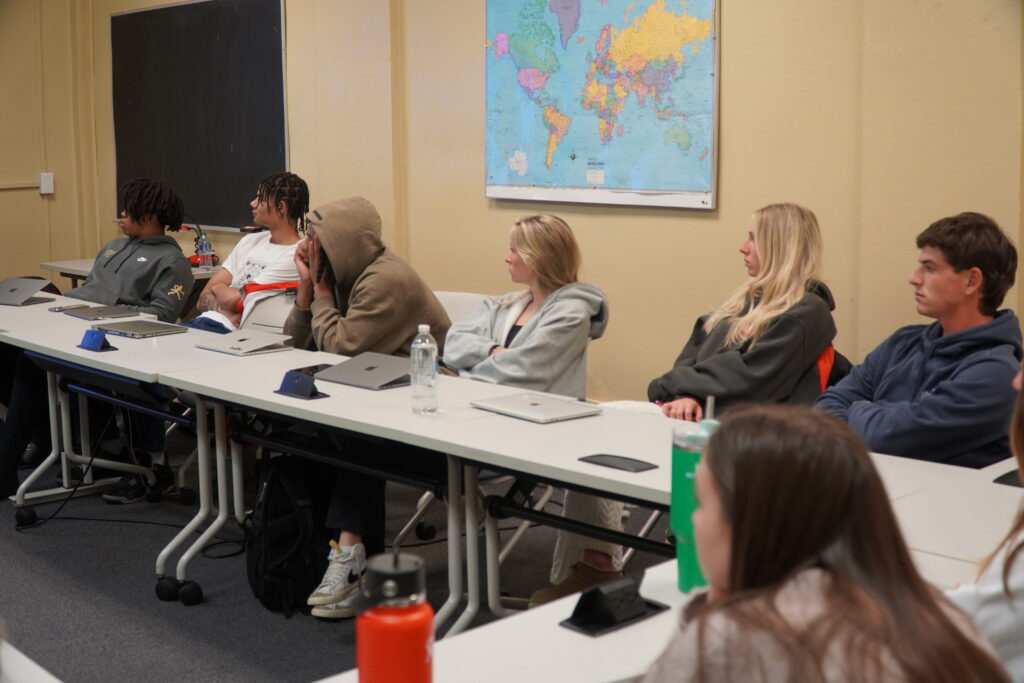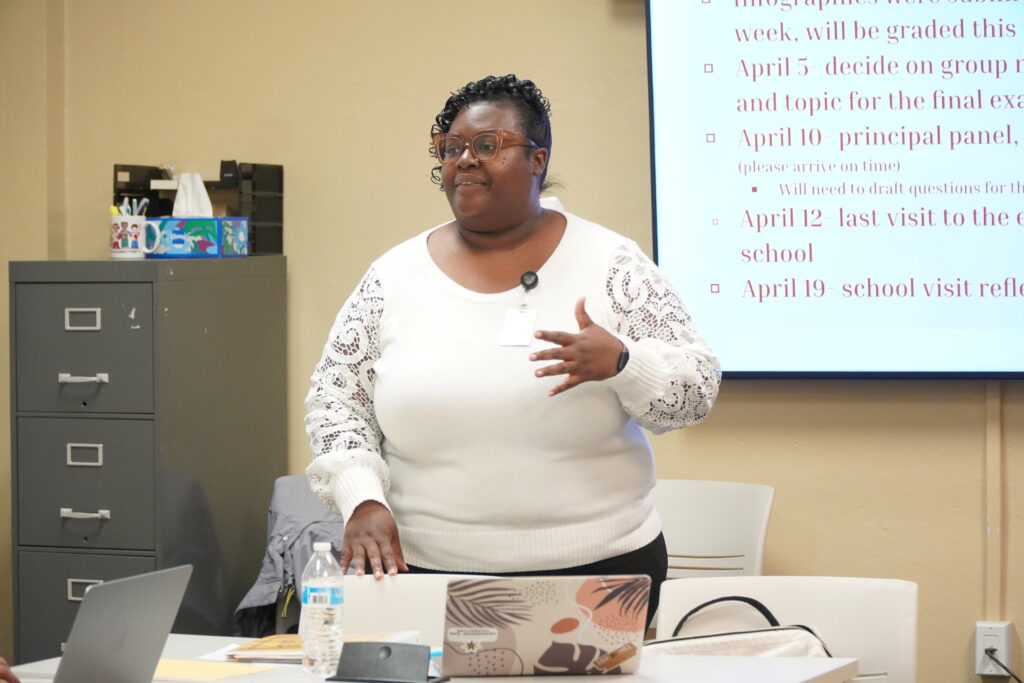A Course that Examines Everyday Leadership in Education
Dr. Christina Richardson, a postdoctoral fellow in the Program for Leadership and Character and Department of Education, sends her students out to find leadership lessons in common classroom situations.

When Lingran Hu (‘27) was given an assignment to interview a teacher or community leader to learn how they exemplify leadership, she decided to speak with someone she admired: Xie Li Xia. Hu worked under Xie at a center for children with autism, and an interview with her former supervisor helped her realize that Xie exemplifies virtues of resilience and empathy in her role.
Hu also gained a new perspective on introspection and self-awareness in leadership. “I think that introspection allows leaders to understand their own strengths, weaknesses, values, and beliefs,” says Hu. “It helps leaders to make better decisions, communicate more effectively, and build stronger relationships with their team members.”
Hu’s assignment came from Dr. Christina Richardson’s course at Wake Forest, EDU 101: “Current Issues and Trends in Education: Leadership Through the Teacher’s Lens.” This first-year introductory course helps students reflect on the various ways they can lead no matter what role they have. Richardson, a Postdoctoral Fellow in the Program for Leadership and Character and the Wake Forest Department of Education supported by a grant from the Kern Family Foundation, utilized several of the Program’s Seven Strategies for Character Development in class, including reflection on personal experience and engagement with virtuous exemplars. Throughout the semester, her students took a closer look at teachers and others who display leadership characteristics that go beyond their job titles. “It’s one thing to read about [leadership],” says Richardson, “but it’s a different thing to hear the perspective of somebody who’s doing this every day.”

One way that students sought that perspective was through interviewing teachers and community leaders. Students developed questions tailored to the person they interviewed and then wrote reflections on their conversations. In her reflection, Hu noted that leaders should be empathetic and dedicated to helping others. They should also exemplify a commitment to continuous learning and foster a supportive team environment. “Leadership is not limited to just the head of an organization,” she says. “It can be exhibited by every member of the team, and it is the responsibility of the leader to empower and enable others to showcase their leadership abilities.”
Students also spoke with faculty and staff at local elementary schools. One visit included a panel discussion where students heard from a special education teacher, a librarian, and other educational leaders. “For teachers, so much of their work is relational and community-based,” Richardson says. “We really made a point to recognize the number of people it takes to make schools and students successful.”
Richardson wants to help all of her students understand how they’re already leading in their everyday lives, and that leadership goes beyond their roles or titles. “Some people believe that either you have it or you don’t, but I don’t feel that way,” she says. “I believe leadership can come from a set of skills that can be taught.”
—
Richardson also works with Winston Salem TEACH, a teacher preparation collaboration between Wake Forest University, Winston-Salem State University, Salem College, and Winston-Salem/Forsyth County Schools. As a part of Winston-Salem TEACH, Richardson offers training and support to students on building a classroom community, integrating character education, and implementing culturally responsive teaching practices. At the end of the program, those students will graduate and become teachers in high-need schools in Winston-Salem and Forsyth County.
